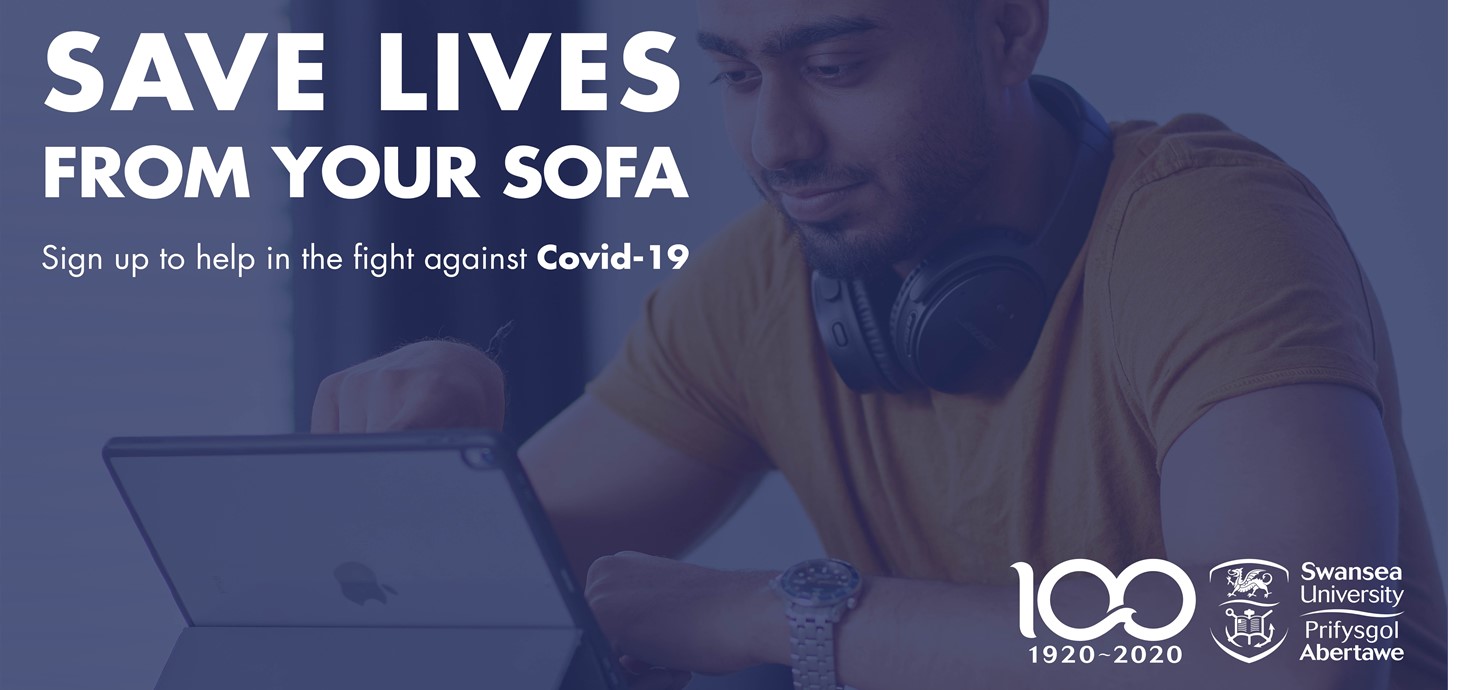These articles are now archived and will no longer be updated.

Scientists from across the UK, including Swansea University, are calling on the public to sign up to a new study which will help identify who is most at risk of contracting COVID-19 and why some people become more ill than others with the disease.
The COVIDENCE UK study aims to recruit at least 12,000 people, aged 16 or over, from across the UK.
Swansea University Medical School is one of the partners in the project, which is led by Queen Mary University of London and funded by the Barts Charity.
The study aims to recruit as diverse a group of volunteers as possible, including those who have already had proven or suspected COVID-19 and those who have not. The team also want to include a mixture of people both with and without underlying conditions such as diabetes, lung disease, heart disease and high blood pressure.
The information gathered will help scientists to understand why certain people appear to be at greater risk.
Find out more about the study here
Professor Ronan Lyons of Swansea University Medical School, who is leading the research in Wales, said:
“We are delighted that people in Wales will have an opportunity to take part in this ground-breaking research. It will rapidly test whether a number of non-pharmaceutical interventions can reduce the number of people suffering from serious COVID19 infections.”
Study lead, Adrian Martineau, Professor of Respiratory Infection and Immunity at Queen Mary University of London, explains:
“We know that people with certain medical conditions seem to be at increased risk of coronavirus disease. However, we don’t know why this is. Is it because people with these conditions tend to be older? Is it something to do with the underlying condition itself? Could particular medications affect the risk? Or are lifestyle factors such as smoking or different dietary patterns which tend to go along with some of these conditions important? The answers to these questions could help us to devise new strategies to reduce infection risk, while we are waiting for an effective vaccine to come along.”
The team also hope the data they gather will help to explain why the number of cases and deaths from COVID-19 include a high proportion of people from black and minority ethnic backgrounds.
Recruits are asked to sign up here and fill in a detailed initial questionnaire, covering their medical history, lifestyle and behaviour in terms of social distancing, hand-washing etc. Simple monthly updates will then track any new symptoms.
The study will also automatically draw on patients’ NHS records to include information on test results and hospitalisations.
